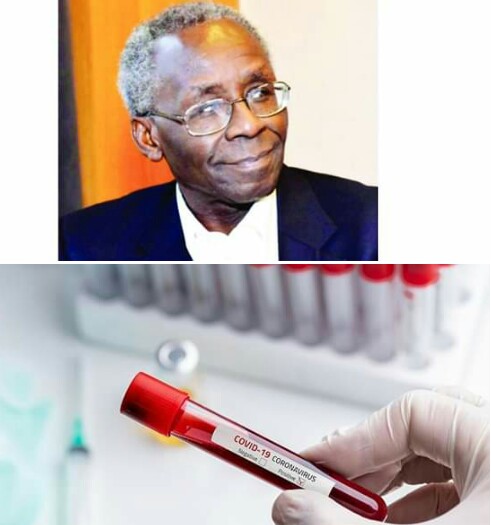
After berating the Nigerian authorities for acting a bit late to contain the spread of coronavirus, former president of Nigerian Academy of Science (NAS), Prof Oyewale Tomori, said the country is now doing the right things.
The former Vice Chancellor, Redeemer’s University told The Nation that the country waited too long before rolling up its sleeves to fight the disease, stressing that it is regrettable that Nigeria did not act fast enough until it recorded its index case.
“We are gradually getting our act together and making strenuous attempts to catch up with the epidemic/pandemic. However, I think we started a bit late as the virus had already left the yard and is now running around in the field. The initial steps we took to prevent cases entering Nigeria obviously did not work, as over 90 per cent of the Nigerian cases were imported from overseas. If we had instituted the preventive and control measures now in operation, immediately after the first case was reported, we certainly would have been in a much better situation than we are now,” he said.
Tomori, an international expert with experience in virology, disease prevention and control, said he fears that many cases are not being detected because of inadequate testing facilities, among other factors.
“I think we probably have more cases than we are detecting. Currently, our strategy is to test only those showing symptoms of the disease. It is estimated that half of the people testing positive for COVID19 infection show no symptoms. It has also been reported that some patients may spread the disease during the incubation period, which may last up to 14 days before symptoms emerge.
“There is growing evidence suggesting that about 10 per cent of people who are not showing symptoms can transmit disease to other persons. Therefore, if we stick to testing only those showing symptoms, we will be missing some cases who may be transmitting the disease to other people. We therefore need to change our strategy and test all those who have come in contact with positive cases.”
The professor of virology also believes the situation is likely to get worse because of the way the cases are being managed.
“I expect the situation to get worse because our testing is too limited to detect most of the cases, and the facilities where positive cases are to be isolated are currently inadequate. Add to that the fact that fear of stigmatisation may prevent some positive cases reporting to appropriate authorities, and instead seek private treatment. I also think our environmental and living conditions will make it difficult, if not impossible, to fully comply with the standard COVID-19 preventive guidelines and control procedures – social distancing, self-isolation, washing hands with water and soap, etc. – needed to ‘flatten the epidemic/pandemic curve.’
“We are not providing enough relevant information about the positive cases to the public, such as details of specific locations, where they have been and the time they were at the locations. These will better engage the community in working with health workers in locating and tracing contacts.
Secondly, we are not testing enough, we should expand our testing to include contacts of positive cases whether showing symptoms or not. Thirdly, the information to the public about government plans for containment and lock down comes in bits and pieces and sometimes uncoordinated, with each state announcing its plan as if independent of the federal government,” he said.
He also lampooned Nigeria’s state of preparedness for medical emergencies, saying the country has not learnt lessons from outbreaks of infectious diseases it had suffered in the past.
“On paper, we seem prepared but in reality we are not. One is not just talking about covid-19. We often pride ourselves with dealing with Ebola, but after we did Ebola in, Lassa Fever, Yellow Fever and Monkypox, all came to do us in. We deal with disease epidemics based on lessons forgotten and not lessons learnt. Remember that the first COVID-19 case was admitted into the isolation ward from where he was moved to a more suitable place. I hate to think that were he a Nigerian, he would have suffered in silence and probably died of malaria. I am sure the situation of the isolation ward in Lagos State must have improved, but can one vouch for the condition of the isolation wards in other states? One would really love to see the isolation wards where we keep the top level and high and mighty citizens of the country who test positive for COVID-19.”
Going forward, he advised that Nigeria should leverage the lessons from the pandemic to turn around the country for the benefit of all. “The looming COVID-19 health and economic catastrophe should make our country sit back and see how we will make the future of Nigeria better than it is now. We have lost unique opportunities pre-COVID19, through years of wasteful squandering of our non-renewable natural resources, through a painful disdain of, and lack of respect for our unique human resource as well as through a national aversion to issues of decency and integrity. We have suffered too much as a nation from a self-inflicted internal destruction. I am hoping that when we are out of this COVID-19 lock down, that we will all – individually and collectively – emerge as moral and patriotic citizens determined to make our nation a respectable and respected country.”













